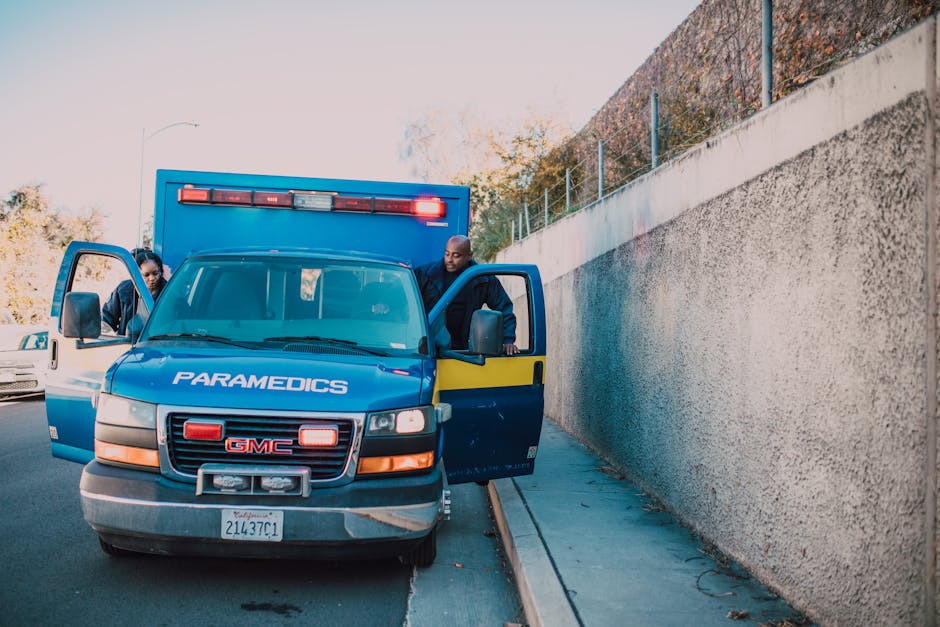If you've been involved in a car accident in California, understanding your legal rights and the specific laws that apply in your situation is crucial for protecting your interests and maximizing your compensation. California has unique regulations, insurance requirements, and legal procedures that differ from other states, making it essential to familiarize yourself with these rules before filing a claim or pursuing legal action. According to the National Highway Traffic Safety Administration (NHTSA), comprehensive understanding of accident types and liability factors can significantly improve claim outcomes.
In this comprehensive guide, we'll break down everything you need to know about California car accident laws, including fault determination rules, insurance requirements, statute of limitations, and how to navigate the claims process effectively. Whether you're dealing with minor property damage or serious injuries, this article will provide the knowledge you need to make informed decisions.
Understanding California-Specific Car Accident Laws
California follows specific legal frameworks that govern how car accident claims are handled. Understanding whether your state operates under an at-fault or no-fault system is the first step in determining how you'll pursue compensation after an accident.
In at-fault states, the driver responsible for causing the accident is liable for damages, and injured parties can file claims against the at-fault driver's insurance or pursue a personal injury lawsuit. In no-fault states, drivers must first file claims with their own insurance companies regardless of who caused the accident, though serious injuries may allow you to step outside this system.
How Fault Is Determined
Establishing fault is critical in car accident cases. Police reports, witness statements, traffic camera footage, and accident reconstruction all play vital roles in determining liability. California may follow pure comparative negligence, modified comparative negligence, or contributory negligence rules, which affect how compensation is calculated when multiple parties share fault.
Mandatory Insurance Requirements in California
Every state mandates minimum insurance coverage levels that drivers must carry. In California, these requirements typically include:
- Bodily injury liability coverage - Pays for injuries you cause to others
- Property damage liability coverage - Covers damage you cause to others' property
- Personal injury protection (PIP) - In no-fault states, covers your medical expenses regardless of fault
- Uninsured/underinsured motorist coverage - Protects you when the at-fault driver lacks adequate insurance
Driving without adequate insurance can result in fines, license suspension, and personal liability for all damages in an accident. It's crucial to understand not just the minimum requirements, but also why carrying higher coverage limits is often wise.
Essential Steps to Take After an Accident
The actions you take immediately following a car accident can significantly impact your ability to recover compensation. Here's what you should do:
1. Ensure Safety and Call 911
Your first priority is safety. Move to a safe location if possible, check for injuries, and call 911 to report the accident and request medical assistance if needed. Even if injuries seem minor, having an official police report is invaluable for insurance claims.
2. Document the Scene Thoroughly
Use your smartphone to photograph vehicle damage, road conditions, traffic signs, and visible injuries. Collect contact information from all drivers, passengers, and witnesses. Note the time, weather conditions, and any relevant details about how the accident occurred.
3. Seek Immediate Medical Attention
Many serious injuries, including whiplash, concussions, and internal bleeding, may not show immediate symptoms. Visiting a doctor within 24-48 hours creates a medical record that links your injuries to the accident, which is crucial for your claim.
Filing Insurance Claims in California
The claims process varies depending on whether you're in an at-fault or no-fault state. In California, you'll need to notify your insurance company promptly, typically within a specific timeframe outlined in your policy.
When filing a claim, provide all documentation including the police report, medical records, photographs, and any correspondence with the other driver or their insurance company. Be cautious when giving recorded statements to insurance adjusters, as anything you say can be used to minimize your claim.
Working with Insurance Adjusters
Insurance adjusters work for the insurance company, not for you. Their goal is to settle claims quickly and for as little money as possible. Common tactics include:
- Offering quick, low settlements before you know the full extent of your injuries
- Requesting access to your complete medical history to find pre-existing conditions
- Using your social media posts against you
- Delaying payment in hopes you'll accept less
Having an experienced personal injury attorney can level the playing field and ensure you receive fair compensation.
Types of Compensation Available
If you're injured in a car accident in California, you may be entitled to various types of compensation, including:
Economic Damages:
- Medical expenses (past and future)
- Lost wages and reduced earning capacity
- Property damage repairs or replacement
- Out-of-pocket costs (medications, medical equipment, transportation)
Non-Economic Damages:
- Pain and suffering
- Emotional distress and mental anguish
- Loss of enjoyment of life
- Permanent disability or disfigurement
In cases of extreme negligence or intentional misconduct, punitive damages may also be awarded to punish the wrongdoer and deter similar behavior.
Time Limits for Filing Lawsuits
Every state has a statute of limitations that sets a deadline for filing personal injury lawsuits. In California, you typically have between one and six years from the date of the accident to file a lawsuit, though this varies by state and type of claim.
Missing this deadline means losing your right to pursue compensation through the courts permanently. While insurance claims have their own deadlines, it's crucial to consult with an attorney early to ensure you don't miss any critical timeframes.
When to Hire a Car Accident Attorney
While minor fender-benders with no injuries might be handled without legal representation, you should strongly consider hiring an attorney if:
- You suffered serious or permanent injuries
- Fault is disputed
- Multiple parties are involved
- The insurance company denies your claim or offers an unfairly low settlement
- The at-fault driver was uninsured or underinsured
- You're facing medical bills exceeding the available insurance coverage
Most personal injury attorneys work on a contingency fee basis, meaning you pay nothing unless they win your case. Studies show that claimants with legal representation receive settlements averaging 3.5 times higher than those without attorneys.
Related Resources
For more information on related topics, explore these articles:
- Pedestrian Crosswalk Accidents: Enhanced Legal Protections
- How to Find the Best 18-Wheeler Wreck Lawyers for Your Case
- Autonomous Vehicle Accidents: The Future of Liability Law
Frequently Asked Questions
Q3: Can I negotiate the settlement amount?
A: Yes, initial settlement offers are almost always negotiable. Your attorney can provide counter-offers with supporting evidence to justify a higher amount.
Q2: How long does it take to receive a settlement payment?
A: Most settlements are paid within 2-6 weeks after signing the release. Complex cases with structured settlements may take longer to finalize the payment arrangement.
Q1: What happens if I reject a settlement offer?
A: You have the right to reject any offer and proceed to trial. However, consider that trials involve more time, expense, and uncertainty compared to settlements.
Conclusion
Navigating the legal landscape after a car accident in California can be complex and overwhelming, especially when you're dealing with injuries, property damage, and insurance companies that may not have your best interests at heart. Understanding your state's specific laws, insurance requirements, and legal procedures is essential for protecting your rights and securing fair compensation.
By taking the right steps immediately after an accident, documenting everything thoroughly, seeking prompt medical attention, and consulting with an experienced personal injury attorney, you can significantly improve your chances of a successful claim. Remember, the insurance company's first offer is rarely their best offer, and you have the right to fight for the full compensation you deserve.
Don't let confusion about state laws prevent you from getting the justice you're entitled to. If you've been injured in a car accident, time is of the essence. Contact a qualified attorney in California today to discuss your case and explore your legal options.






